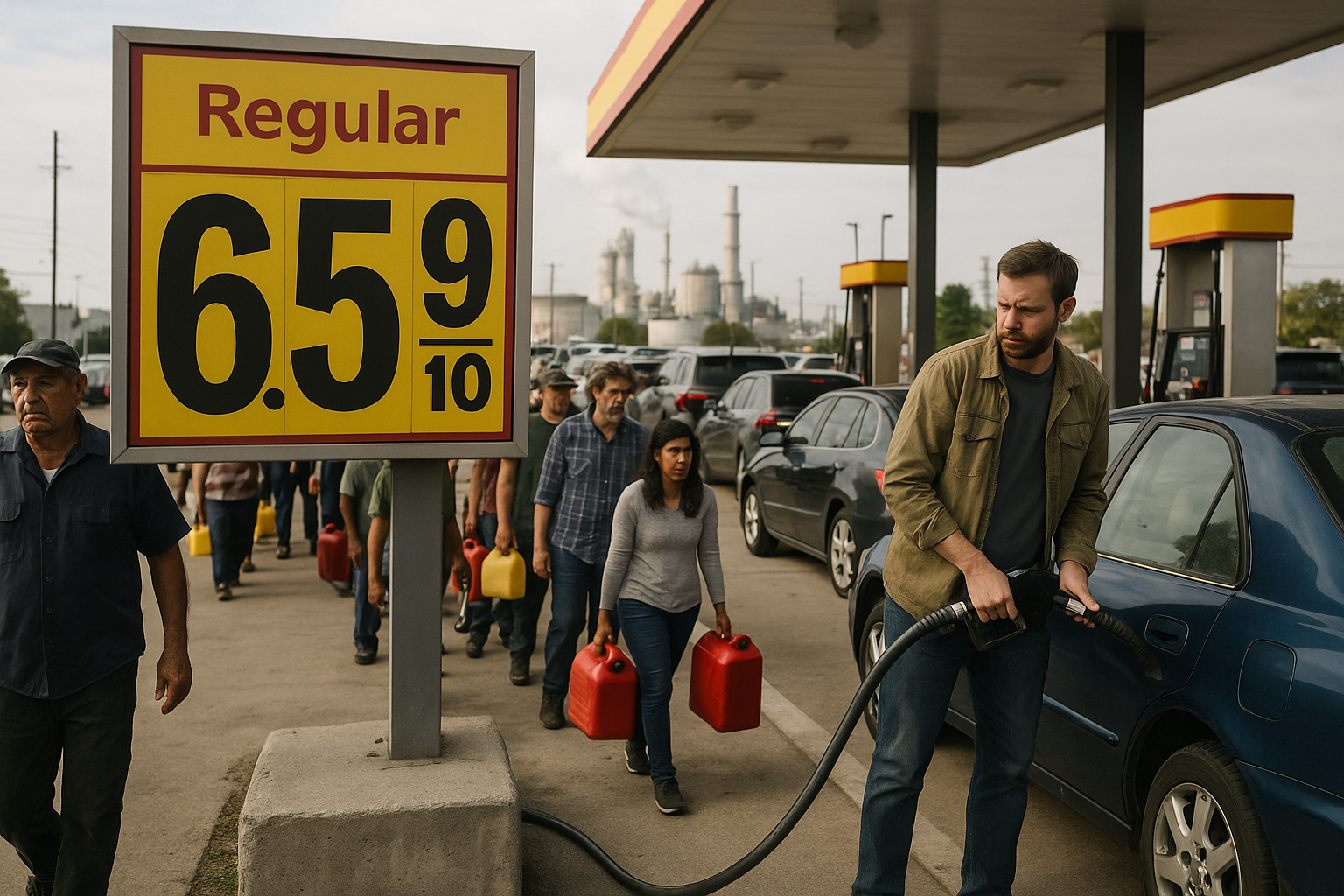From Subsidies to Shortages: How Countries Handled Fuel Price Shocks in a Volatile Era
The World Bank's global study reveals that countries with deregulated fuel markets and frequent price updates had higher pass-through of international price changes, while those with subsidies and price freezes faced fiscal strain, shortages, and black markets. It urges timely reforms to ensure energy security, transparency, and equitable pricing amid global fuel volatility.

The global energy landscape from 2017 to 2023 was characterized by extreme price fluctuations, initially marked by a dramatic collapse during the COVID-19 pandemic and subsequently by a steep rise following Russia’s invasion of Ukraine. These swings in oil markets presented governments worldwide with difficult choices: whether to shield domestic consumers from volatility or allow international prices to dictate local pump prices. In a timely World Bank Policy Research Working Paper, Senior Energy Economist Elcin Akcura offers a sweeping analysis of how 158 countries handled these challenges across eight fuel types, from gasoline and diesel to heating oil and liquefied petroleum gas (LPG).
At the heart of this study is a meticulous calculation of price pass-through coefficients, which measure the extent to which changes in international prices are reflected in domestic fuel prices. The conclusions are clear: countries with deregulated markets and regular price adjustments passed through international price movements more faithfully, while those with fixed prices or subsidies experienced distorted markets, smuggling, shortages, and heavy fiscal costs.
Price Controls vs. Market Mechanisms: Who Passed Through the Pain?
The report reveals that deregulated fuel markets consistently outperformed regulated ones in aligning domestic prices with international benchmarks. Countries that adjusted prices weekly or monthly, such as Panama, Peru, and the Philippines, displayed significantly higher pass-through. In contrast, countries that froze prices or updated them only quarterly (or less) saw growing disparities.
For example, Burkina Faso froze gasoline prices despite surging global costs, leading to fuel shortages and arrears of over $660 million to its national oil company. In Algeria and Azerbaijan, domestic gasoline prices remained consistently below U.S. Gulf Coast levels even as international prices soared, reflecting entrenched subsidy regimes. In contrast, Sierra Leone used the 2024 price moderation window to overhaul its outdated fuel pricing formula, aligning it with realistic import costs and introducing a correction levy, an example of forward-looking reform.
Diesel, Kerosene, and LPG: Political Priorities Shape Price Strategies
While gasoline was often deregulated first due to its association with wealthier consumers, diesel remained politically sensitive due to its role in freight and agriculture. Countries like Malawi, despite being low-income, allowed significant diesel price increases once subsidy funds were exhausted, showing one of the highest pass-through rates in the study.
Kerosene and LPG, primarily used by lower-income households, remained heavily subsidized in many countries, especially in Sub-Saharan Africa. For instance, bottled LPG prices in Côte d’Ivoire and Burkina Faso were frozen for years, despite sharp rises in international butane and propane prices. Efforts to target subsidies, such as limiting them to small-sized LPG cylinders, often failed. In Burkina Faso, commercial users simply shifted to subsidized small bottles, causing severe shortages and a thriving black market by 2023.
Thailand, while officially deregulated, used its Oil Stabilization Fund to subsidize autogas (automotive LPG) by transferring funds directly to producers, highlighting the blurred lines between deregulation and covert state support.
Currency Depreciation, Black Markets, and Smuggling Undermine Pricing Policy
A recurring theme across the study is that exchange rate depreciation significantly weakened price pass-through. In countries like Uzbekistan, Algeria, and Sierra Leone, domestic currency losses magnified the cost of importing fuels, prompting governments to hold prices steady despite rising import bills. Consequently, many of these nations recorded pass-through coefficients well below 0.5.
Furthermore, fuel subsidies often fueled black markets and smuggling, particularly in regions with porous borders. Benin, for instance, saw widespread gasoline smuggling from Nigeria, where subsidies kept prices artificially low. Hungary’s ill-fated fuel price cap in 2022, set far below EU levels, triggered a demand surge from foreign truckers and domestic panic buying, culminating in fuel shortages and eventual policy reversal.
The Road Ahead: Window of Reform Amidst Price Stability
With international oil prices currently in a more moderate phase, the report argues that governments should act decisively to reform fuel pricing mechanisms. Countries that had removed temporary tax cuts showed better alignment with global markets, while those in the midst of long-term subsidy reforms remained sluggish. As the analysis shows, reforming subsidies takes time, and political will is often tested when global prices spike.
The Sierra Leone case offers a compelling blueprint: the government modernized its formula, introduced fuel-type differentiation, and improved transparency through monthly public price updates. These steps not only reduced fuel prices under favorable market conditions but also restored market integrity and fiscal balance.
The broader lesson from Akcura’s global assessment is that incomplete pass-through of international prices undermines energy security, weakens public finances, and creates social inequities. By allowing markets to work, supplemented with targeted social protection instead of universal subsidies, governments can better navigate future price shocks and build more resilient fuel systems.
- READ MORE ON:
- World Bank
- domestic fuel prices
- gasoline
- LPG
- Oil Stabilization Fund
- FIRST PUBLISHED IN:
- Devdiscourse
ALSO READ
World Bank Approves $2.1B Package to Boost Jobs, Clean Energy in Indonesia
World Bank Urges Bold, Cross-Sector Action to Tackle Air Pollution in Nepal
World Bank Grants $30M to Yemen for Digital Finance and Education Recovery
World Bank Launches $150M Program to Boost Sri Lanka’s clean energy transition
World Bank Urges SME Empowerment to Boost Inclusive Growth in Philippines










